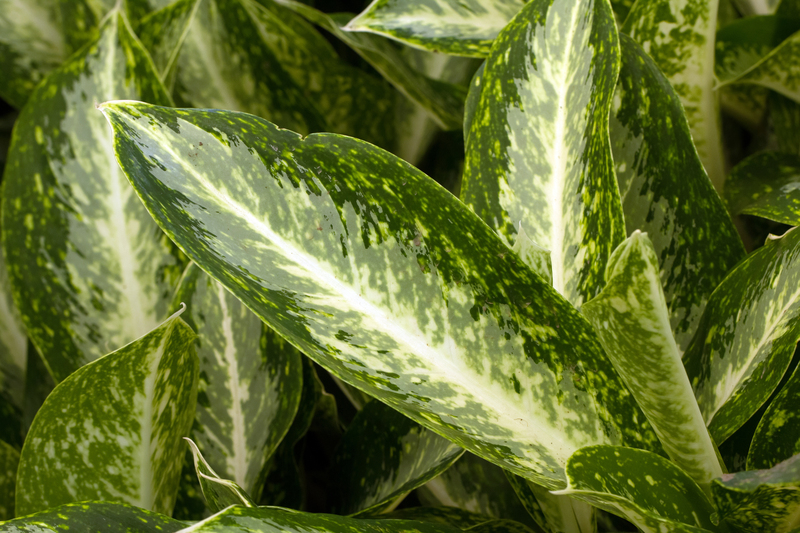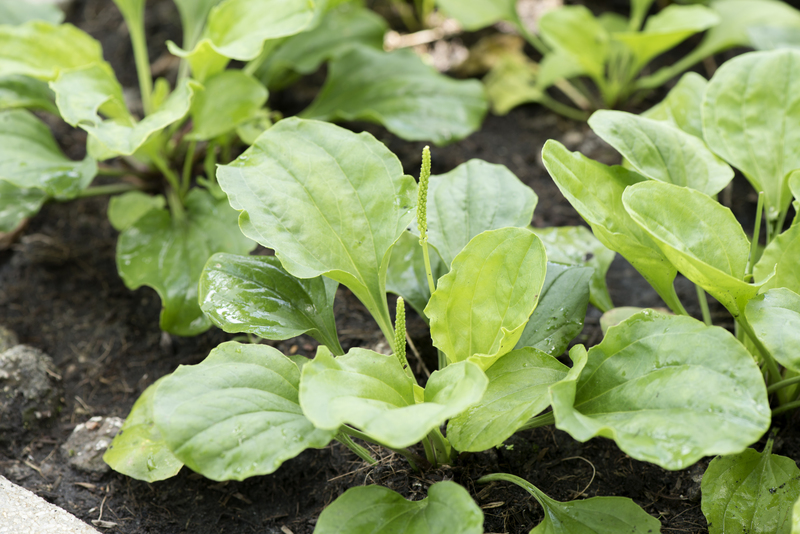Effective Ways to Safeguard Your Garden in Winter
Posted on 24/08/2025
Effective Ways to Safeguard Your Garden in Winter
As the chill of winter approaches, many garden enthusiasts worry about the well-being of their beloved green spaces. Properly safeguarding your garden in winter is essential to ensure your plants, lawn, and landscaping survive the harsh conditions and flourish come spring. In this comprehensive guide, we'll explore a range of effective ways to protect your garden in cold weather, offering you practical tips and expert advice to help your garden thrive all year round.
Why is Winter Protection Essential for Your Garden?
Winter brings freezing temperatures, biting winds, heavy snowfall, and unpredictable weather patterns that can wreak havoc on your plants. Many species, especially perennials and shrubs, are susceptible to frost damage, dehydration, and root rot. Taking proactive steps to safeguard your garden during winter is critical for:
- Preventing plant loss and ensuring survival through low temperatures
- Reducing the risk of disease and pest infestations
- Protecting soil structure and fertility for spring planting
- Maintaining garden aesthetics and minimizing winter damage

1. Preparing Your Garden Before Winter Arrives
One of the most effective ways to winterize your garden is to start preparations in late autumn. Advance planning minimizes plant stress and ensures optimal conditions for survival.
Clean Up Debris and Dead Plants
Remove all spent annuals, fallen leaves, weeds, and dead plant material. This helps prevent overwintering pests and diseases that may find shelter in the garden debris. However, leave some perennials and ornamental grasses for beneficial insects and winter interest.
Cut Back Perennials Carefully
Trim your perennials to the recommended height for each species. Some, like peonies, should be cut down completely, while others, such as coneflowers, can be left partially for habitat and food for birds.
2. Mulching: Your First Line of Defense
Mulching is perhaps the most vital winter garden protection technique. A generous layer of mulch insulates the soil, stabilizes temperature fluctuations, and reduces frost heave.
- Apply 2-4 inches of organic mulch such as shredded bark, straw, or compost around your plants.
- Leave space around stems to prevent rot and fungus.
- Use evergreen boughs or leaf mulch for extra protection in particularly cold regions.
- Pine needles, wood chips, and finely shredded leaves are also suitable options.
Mulching helps regulate soil moisture, deters weed growth, and provides long-term nourishment as organic materials break down.
3. Protecting Tender Plants and Shrubs
Some plants, especially evergreens, roses, citrus, and non-hardy perennials, require extra winter safeguards.
Use Protective Coverings
- Burlap wraps or garden fleece: Loosely wrap shrubs and small trees to shield them from wind, frost, and snow buildup.
- Cloche or bell jars: Cover delicate plants or young seedlings with glass or plastic domes to create a mini greenhouse effect.
- Horticultural fleece and frost blankets: Drape these materials over beds and anchor the edges securely to the ground.
- Build windbreaks: Erect temporary screens using stakes and shade cloth to reduce wind exposure for sensitive species.
For container plants and pots, move them closer to a sheltered wall, wrap the containers in bubble wrap or burlap, and keep pots raised off the ground for proper drainage.
4. Watering Wisely During Winter
It's a common misconception that gardens don't require water in winter. In fact, plants can dry out even in cold weather if rainfall is scarce or the ground is frozen.
- Water deeply before the first hard frost to ensure roots are hydrated going into winter.
- Monitor soil moisture throughout warmer spells; water if the ground is dry and unfrozen.
- Avoid watering in the evening to prevent ice formation on plants.
Proper hydration helps reduce winter stress and allows your plants to uptake available nutrients for survival.
5. Safeguarding Your Lawn in Winter
Don't overlook your grass! Winter lawn care is vital for maintaining a lush, healthy yard come spring.
Key Winter Lawn Protection Strategies
- Rake leaves and debris regularly to prevent smothering and disease.
- Mow your lawn to the recommended winter height to avoid matting and fungal problems.
- Aerate and fertilize in fall to strengthen roots against winter stress.
- Avoid heavy foot traffic on frosty grass to prevent soil compaction and damage.
- Apply a thin layer of compost or sand if necessary for added protection.
By implementing these simple measures, you preserve your lawn's health and vigor long after winter's end.
6. Winter Proofing Your Garden Structures and Tools
Garden infrastructure--including sheds, fences, greenhouses, and irrigation--also requires seasonal care.
- Drain hoses and irrigation systems to prevent freezing and cracking.
- Repair and reinforce fences, gates, and raised beds so they withstand snow loads and winter storms.
- Insulate your greenhouse with bubble wrap and check for drafts or leaks.
- Store garden tools in a dry, frost-free environment and apply a thin coat of oil to prevent rusting.
Well-maintained tools and structures ensure you're ready for planting when spring arrives.
7. Wildlife-Friendly Winter Gardening
Safeguarding your winter garden also means supporting local wildlife, which can benefit your plants in the long run.
- Leave seed heads on some plants as food for birds and other animals.
- Provide bird feeders, nesting boxes, and fresh water sources that won't freeze easily.
- Allow some leaf litter to remain in quiet corners as a habitat for beneficial insects.
- Plant native evergreens and berry-producing shrubs for winter forage and shelter.
Balancing garden protection with wildlife support creates a healthy, resilient ecosystem all season long.
8. Dealing With Snow and Ice Buildup
Heavy snow and ice can break branches, flatten shrubs, and damage even robust plants. Here's how to minimize harm:
- Gently brush off excess snow from branches using a broom or gloved hand after a storm.
- Avoid shaking plants violently, as this can cause more snapping or breakage.
- Stake tall or floppy plants in fall to keep them upright under snow loads.
- For delicate evergreens, tie branches loosely with soft twine to prevent splaying.
- Apply anti-desiccant sprays to broadleaf evergreens to reduce moisture loss during freeze-thaw cycles.
Never use salt-based de-icers near plants, as they can seep into the soil and cause root burn.
9. Special Tips for Vegetable Gardens in Winter
If you grow vegetables, protecting your plot is key to winter gardening success. Here's how to keep your crops safe:
- Sow winter-hardy vegetables like kale, spinach, and Brussels sprouts that tolerate cold well.
- Invest in cold frames, mini hoop houses, or row covers to extend your growing season and shield plants from harsh winds and snow.
- Rotate crops and add organic matter in fall to improve soil health and structure.
- Harvest root crops late, leaving them in the ground with a thick mulch until needed.
With a bit of planning, you can enjoy fresh produce even in the depths of winter!
10. Planning Ahead: Preparing for Next Spring
A winter-ready garden also sets the stage for spring success. Keep a garden journal to track:
- Which protection methods worked best
- What survived (or didn't) the winter
- Any pest or disease issues that emerged
- New plants or varieties to try next season
Review your notes as winter wanes and use them to plan a healthier, more resilient garden for the coming year.

Frequently Asked Questions (FAQs) About Safeguarding Gardens in Winter
- Q: How can I tell if my plants are hardy enough to survive winter?
A: Check your local plant hardiness zone and compare it to the recommended zones for each plant. Non-hardy varieties are best overwintered indoors or given extra protection outdoors. - Q: Should I fertilize my plants in winter?
A: Avoid fertilizing during the dormant season. Most plants use less energy, and excess nutrients can harm roots. Fertilize in late fall or early spring as growth resumes. - Q: Can I still compost in winter?
A: Yes! Keep compost piles covered and turn them occasionally. Decomposition will slow, but organic waste continues to break down, enriching your soil for spring.
Conclusion: Ensure Year-Round Garden Health
Winter doesn't have to spell disaster for your cherished garden. By applying the effective ways to safeguard your garden in winter described above, you protect your plants, soil, and landscaping investment. From timely cleanup and mulching to selective covering and supporting local wildlife, every action helps ensure a vibrant, lush garden when warmer days return. Prepare early, stay vigilant, and your garden will reward you with beautiful blooms and bountiful harvests next season.
Remember, a little winter care goes a long way! For more seasonal gardening tips and inspiration, check back regularly or sign up for our newsletter.
Latest Posts
Balance and Beauty: Zen Garden Ideas for Your Yard
Innovative Approaches to Garden Seating Design
Transform Your Landscape: Cutting-Edge Hedge Trimming Shapes and Methods
Optimize Your Garden's Beauty with These 3 Weed Solutions
Transform Your Space: 9 Beginner Gardening Tips You Can't Miss

